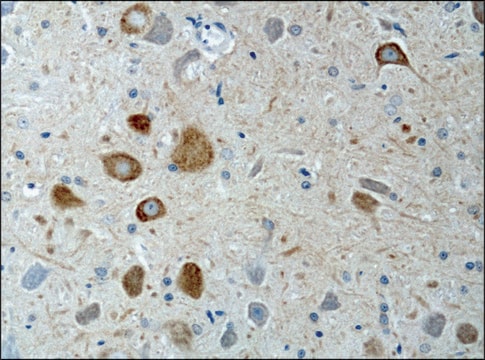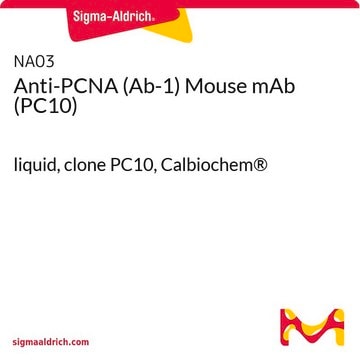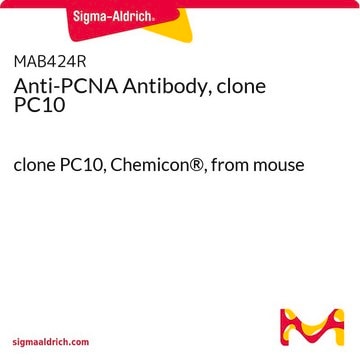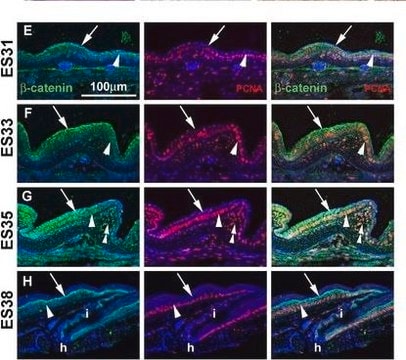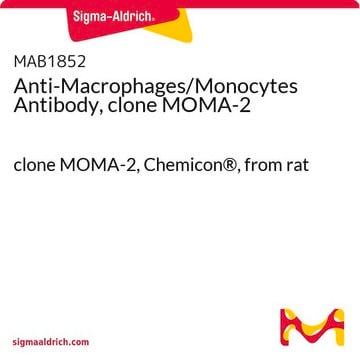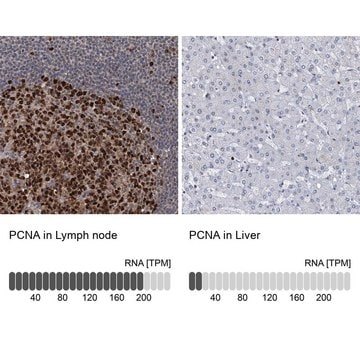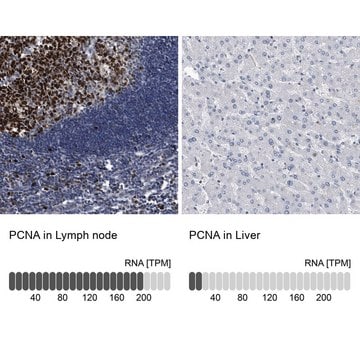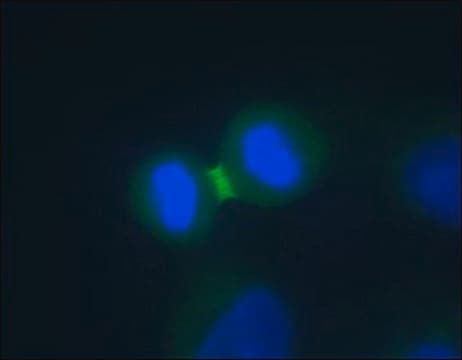P8825
Monoclonal Anti-Proliferating Cell Nuclear Antigen antibody produced in mouse
clone PC 10, ascites fluid
Sinónimos:
Monoclonal Anti-Proliferating Cell Nuclear Antigen, Anti-PCNA
About This Item
Productos recomendados
biological source
mouse
Quality Level
conjugate
unconjugated
antibody form
ascites fluid
antibody product type
primary antibodies
clone
PC 10, monoclonal
contains
15 mM sodium azide
species reactivity
human, monkey, insect, yeast
rat, mouse
packaging
antibody small pack of 25 μL
technique(s)
flow cytometry: suitable
immunocytochemistry: suitable
immunohistochemistry (formalin-fixed, paraffin-embedded sections): 1:3,000 using human tonsil sections
immunohistochemistry (frozen sections): suitable
immunoprecipitation (IP): suitable
indirect ELISA: suitable
microarray: suitable
western blot: 1:3,000 using HS-68 human foreskin- cell extract
isotype
IgG2a
shipped in
dry ice
storage temp.
−20°C
target post-translational modification
unmodified
Gene Information
human ... PCNA(5111)
¿Está buscando productos similares? Visita Guía de comparación de productos
General description
Specificity
Immunogen
Application
- enzyme linked immuno sorbent assay (ELISA)
- immunoblotting
- immunohistology
- immunoprecipitation
- flow cytometry
Biochem/physiol Actions
Disclaimer
¿No encuentra el producto adecuado?
Pruebe nuestro Herramienta de selección de productos.
Storage Class
12 - Non Combustible Liquids
wgk_germany
nwg
flash_point_f
Not applicable
flash_point_c
Not applicable
Certificados de análisis (COA)
Busque Certificados de análisis (COA) introduciendo el número de lote del producto. Los números de lote se encuentran en la etiqueta del producto después de las palabras «Lot» o «Batch»
¿Ya tiene este producto?
Encuentre la documentación para los productos que ha comprado recientemente en la Biblioteca de documentos.
Los clientes también vieron
Nuestro equipo de científicos tiene experiencia en todas las áreas de investigación: Ciencias de la vida, Ciencia de los materiales, Síntesis química, Cromatografía, Analítica y muchas otras.
Póngase en contacto con el Servicio técnico